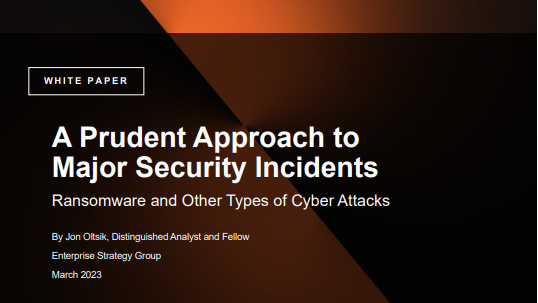Japanese government data stolen in Fujitsu hack
Hackers gained access to the data through Fujitsu's project management software


Sign up today and you will receive a free copy of our Future Focus 2025 report - the leading guidance on AI, cybersecurity and other IT challenges as per 700+ senior executives
You are now subscribed
Your newsletter sign-up was successful
Hackers have gained access to Fujitsu's project management platform resulting in data leaks from various Japanese government offices, according to reports.
A spokesperson for Fujitsu confirmed to IT Pro that an unauthorised third-party gained access to its "Project WEB" platform, a collaboration and project management software used for Japanese-based projects.
"Fujitsu is currently conducting a thorough review of this incident, and we are in close consultation with the Japanese authorities," said the spokesperson. "As a precautionary measure, we have suspended use of this tool, and we have informed any potentially impacted customers."
The Ministry of Land, Infrastructure, Transport, and Tourism said a third party illegally accessed Fujitsu's software which resulted in the ministry suffering a data breach. At least 76,000 email addresses were exposed, including those belonging to individuals outside of the ministry that were registered on its mailing list. The ministry also confirmed that the ProjectWEB software has been taken down.
The stolen information is said to relate to its equipment systems, staff business email addresses, and information on its business relationships.
Japan's National Cyber Security Centre was also affected by the leak, which said that measures were being taken to prevent the spread of the damage. Local media has also reported that hackers accessed software at Narita Airport and stole data held by air traffic control systems, as reported by NHK.
Chief Cabinet Secretary Kato Katsunobu said on Wednesday that no damage to the Cabinet's cyber security centre's system had been confirmed.
Sign up today and you will receive a free copy of our Future Focus 2025 report - the leading guidance on AI, cybersecurity and other IT challenges as per 700+ senior executives
He added that cyber security must be tightened, as hackers could target the Tokyo Olympics and Paralympics, which are scheduled to take place in two months time.
Zach Marzouk is a former ITPro, CloudPro, and ChannelPro staff writer, covering topics like security, privacy, worker rights, and startups, primarily in the Asia Pacific and the US regions. Zach joined ITPro in 2017 where he was introduced to the world of B2B technology as a junior staff writer, before he returned to Argentina in 2018, working in communications and as a copywriter. In 2021, he made his way back to ITPro as a staff writer during the pandemic, before joining the world of freelance in 2022.
-
 Salesforce targets telco gains with new agentic AI tools
Salesforce targets telco gains with new agentic AI toolsNews Telecoms operators can draw on an array of pre-built agents to automate and streamline tasks
-
 Four national compute resources launched for cutting-edge science and research
Four national compute resources launched for cutting-edge science and researchNews The new national compute centers will receive a total of £76 million in funding
-
 A strategic approach to security: Intelligent, collaborative, and efficient
A strategic approach to security: Intelligent, collaborative, and efficientwhitepaper How your security fabric can address the challenges of new tech investment
-
 Anticipate, prevent, and minimize the impact of business disruptions
Anticipate, prevent, and minimize the impact of business disruptionsWhitepaper Nine best practices for building operational resilience
-
 Thwart cyberthreats fast with security operations + AI Ops
Thwart cyberthreats fast with security operations + AI OpsWhitepaper How automated collaboration saves the day
-
 Three steps to transforming security operations
Three steps to transforming security operationsWhitepaper How to be more agile, effective, collaborative, and scalable
-
 Top ten ways to anticipate, eliminate, and defeat cyber threats like a boss
Top ten ways to anticipate, eliminate, and defeat cyber threats like a bossWhitepaper Improve your cyber resilience and vulnerability management while speeding up response times
-
 Automation antidotes for the top poisons in cyber security management
Automation antidotes for the top poisons in cyber security managementWhitepaper How orchestration and collaboration tools can provide a healthy defense against the most serious threats
-
 A prudent approach to major security incidents
A prudent approach to major security incidentsWhitepaper Establish an effective strategy across four phases
-
 Cybercriminals are resilient. How about you?
Cybercriminals are resilient. How about you?Whitepaper Stay ahead of those agile bad actors
